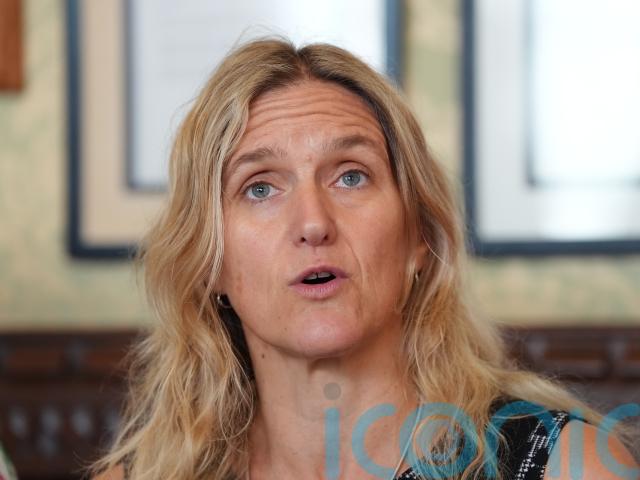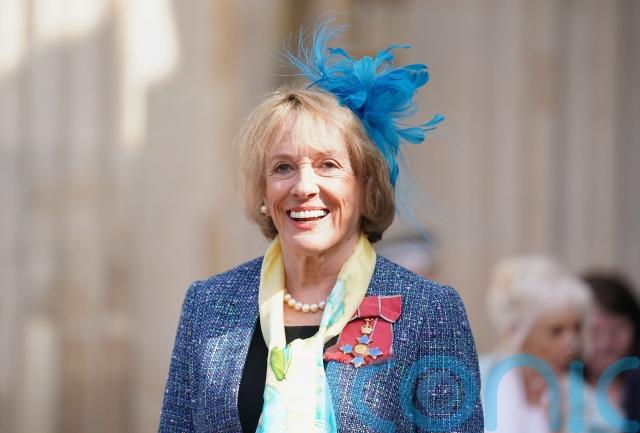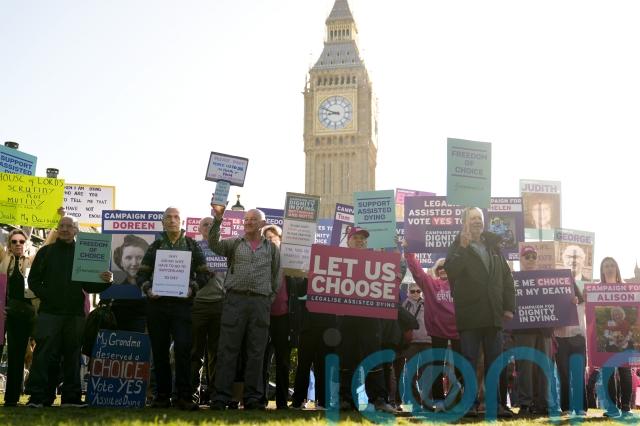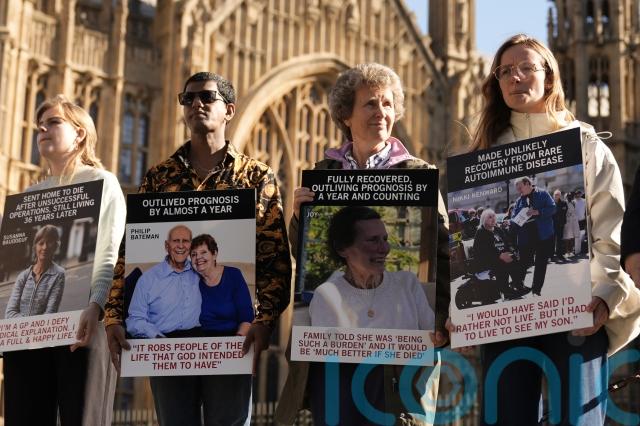
The MP behind the assisted dying Bill has rejected the idea it could lead to cover-ups for medical mistakes, as the proposed legislation was branded a “licence to kill”.
Kim Leadbeater watched from the gallery as peers in the House of Lords debated her proposed legislation for the first time on Friday.
Dozens of members spoke passionately for or against the Terminally Ill Adults (End of Life) Bill as their colleagues listened on the packed red benches of the debating chamber.
Conservative former prime minster Theresa May told fellow peers how a friend had branded it the “‘licence to kill’ Bill”.
The ex-Tory leader referred to it as an “assisted suicide Bill” and said it “effectively says suicide is OK”.
Baroness May, one of around 190 peers with their names down to speak on the Bill across a two-day debate which will resume next Friday, said she is worried about the impact on people with disabilities, chronic illness and mental health problems as “there is a risk that legalising assisted dying reinforces the dangerous notion that some lives are less worth living than others”.
She told the Lords: “There is a danger that this could be used as a cover-up; a cover-up for mistakes made in hospital, or for perhaps a hospital-acquired illness, infection, which has led to an increased likelihood of death.
“I have a friend who calls it the ‘licence to kill’ Bill.”
Ms Leadbeater, who introduced the Bill in the Commons last year, said while Baroness May had made a “very powerful contribution”, the two are “at different sides of this argument and the debate”.

She told the PA news agency: “I thought it was a very powerful contribution, but I knew what Theresa’s views were, and we are at different sides of this argument and the debate.”
She said she found the “framing around suicide very uncomfortable”, adding that “the terminally ill people I’ve met are definitely not suicidal”, rather, they are dying.
On Baroness May’s suggestion around cover-ups, she told PA: “The last thing that the Bill would enable would be cover-ups, because it’s such a thorough process and it creates a framework around the assisted death rather than the lack of framework that there is at the moment.”
She welcomed what she expected to be a “significant amount of scrutiny” for her Bill in the Lords but still feels positive it will pass into law, delivering the “safest, most robust piece of assisted dying legislation in the world”.
She said: “I do remain confident that the will of the public will be respected, as will the will of the elected chamber.”
Leading support for the Bill in the Lords, former lord chancellor and justice secretary Lord Charlie Falconer said the current law is “confused” and “causes terrible suffering and lacks compassion and safeguards”.
Those backing a change in the law have repeatedly said it is not acceptable that desperate terminally ill people feel the need to end their lives in secret or go abroad to Dignitas alone, for fear that loved ones will be prosecuted for helping them.
Childline founder and pro-assisted dying campaigner Dame Esther Rantzen, who is terminally ill, confirmed in an interview on Good Morning Britain that she is “making arrangements – because it’s the only way I can have an assisted death – to go by myself to Zurich, to Dignitas”.

Lord Falconer, who described Friday’s debate as a “historic occasion”, told peers some dying people go to Dignitas “often alone because those who accompany them from England fear the consequences of the criminal law”.
Amid concerns peers could use parliamentary measures to slow the progress of or even block the Bill, he told colleagues: “Our job is not to frustrate, it is to scrutinise.”
While the Lords is seen mainly as a revising chamber, undertaking line-by-line scrutiny of draft laws which have already had approval in the Commons, peers can tell MPs to “think again” when they feel it necessary.
Bishop of London Dame Sarah Mullally insisted peers must be given a vote on the overall Bill – something which usually happens at a future stage known as Third Reading but could happen earlier, at the end of debate next week.
She told the House: “It may not be the will of the House to take the decision on the principle of this Bill today, but I firmly hope that we will do that in the Third Reading.
“If it is necessary, I will table the amendment myself, so this House is given the same opportunity as the other place (the Commons) to decide.”

There is always a motion to agree Second Reading at the end of the debate – likely to be on September 19.
That is not usually put to a vote in the Lords but it can be and, if peers voted no, the Bill would fall and parliamentary efforts to legalise assisted dying would have to start again.
Lord Dubs, speaking in favour during Friday’s debate, said he would “certainly want to avail” himself of the Bill, if his “health had reached the position” where he qualified.
Ahead of the debate, the equalities watchdog raised concerns about the Bill, calling for more detailed assessment of how the proposed legislation might affect society’s most vulnerable.
In advice to members of the House of Lords, the Equality and Human Rights Commission (EHRC) said more detail is needed on how a new law could affect people from different backgrounds and those with disabilities.
As peers began to debate, demonstrators gathered outside Parliament both in support of and in opposition to the Bill, which would apply to England and Wales if it became law.

The Bill as it stands requires an application for an assisted death to be approved by two doctors and an expert panel and would make assisted dying available to adults in England and Wales with a terminal diagnosis of less than six months to live.
With around 190 peers having put their names down to speak across the two-day debate, it could surpass the previous record of 187, for the EU Withdrawal Bill’s Second Reading debate in 2018.
Friday’s debate, during which 89 peers gave their views, ended at 4.37pm and will resume on September 19 at 10am.
Subscribe or register today to discover more from DonegalLive.ie
Buy the e-paper of the Donegal Democrat, Donegal People's Press, Donegal Post and Inish Times here for instant access to Donegal's premier news titles.
Keep up with the latest news from Donegal with our daily newsletter featuring the most important stories of the day delivered to your inbox every evening at 5pm.